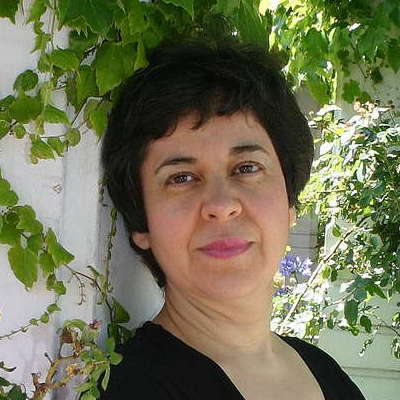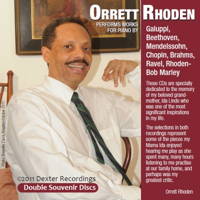 SPONSORED: CD Spotlight. Most Remarkable - Jamaican pianist Orrett Rhoden, heard by Bill Newman.
SPONSORED: CD Spotlight. Most Remarkable - Jamaican pianist Orrett Rhoden, heard by Bill Newman.
All sponsored features >>
More Gluck, please!
MIKE WHEELER finds Opera North's production of Gluck's 'Orfeo ed Euridice' totally riveting
Opera North's autumn season included not one but two operas on the Orpheus myth, Gluck's and Monteverdi's.
Some have disparaged Gluck's Orfeo ed Euridice for its plain-speaking musical style, but that's the point. This and other works formed a manifesto for a new approach to opera, emphasising the importance of narrative over unnecessarily extravagant vocalism. Its directness is part of its strength.
But as Opera North's stripped-back staging demonstrated, directness doesn't have to mean austerity. What we saw in Nottingham - Theatre Royal, Nottingham, UK, 9 November 2022 - had more in the way of staging than the 'concert version' that started the tour in Huddersfield and Leeds. With no director as such - Sophie Gilpin was credited with 'Concert placing' - it complemented the music perfectly. After a sprightly account of the overture, the chorus appeared in plain, modern black outfits, behind a small central platform (which had also done duty in La Traviata), and in front of a starry black backdrop. And there was plenty of movement, from both principals and chorus, as the opera went along.
The role of Orpheus has attracted some starry mezzos and contraltos (and, increasingly, counter-tenors) over the years, and Alice Coote stepped effortlessly in that succession, with just enough of an edge to her tone to fend off any hint of matronly plumminess. Her cries of 'Euridice!' during the sombre opening chorus were all the more effective for their restraint. The deeply-felt lament of 'Chiamo il mio ben così', with an off-stage band providing an effective echo, was followed by fiery resolve in 'Numi! barbari Numi' as Orpheus turns on the gods for their cruelty.
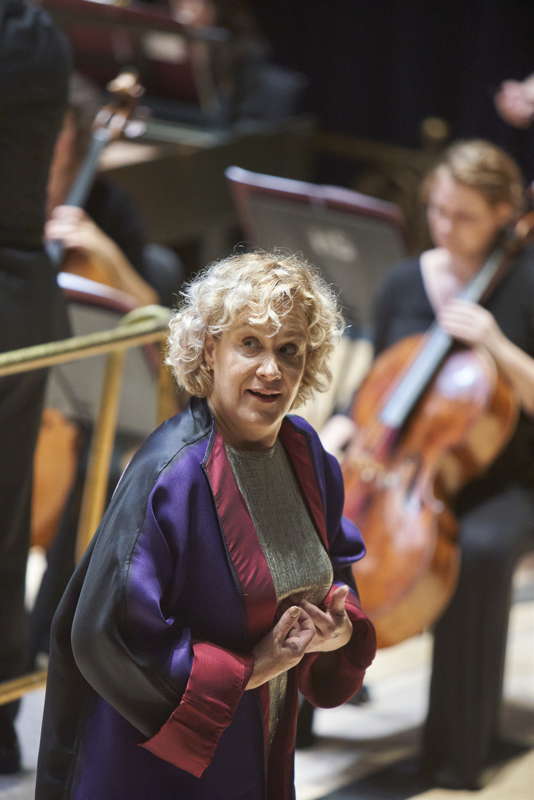
Alice Coote as Orpheus in Opera North's production of Gluck's Orfeo ed Euridice. Photo © 2022 Justin Slee
Daisy Brown's Amore was bright-toned and warmly sympathetic as she offered support, and in her later appearances.
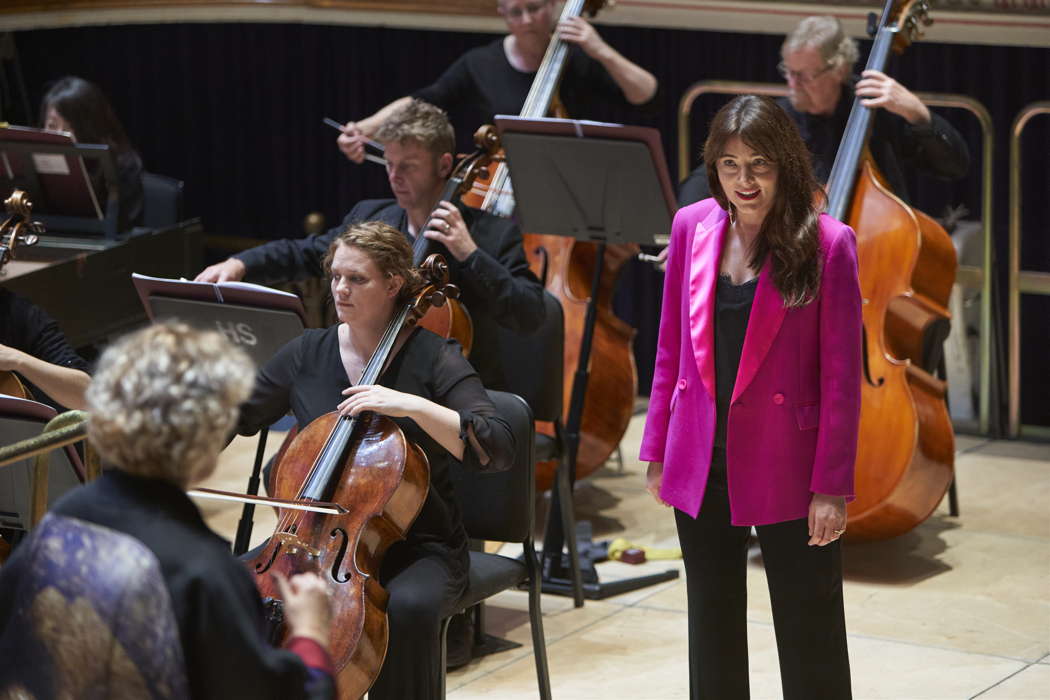
Daisy Brown as Amore in Opera North's production of Gluck's Orfeo ed Euridice. Photo © 2022 Justin Slee
As the Furies at the start of Act II, the chorus summoned up plenty of menace without unnecessary gestures; just sternly pointing at Orpheus was enough. Harpist Céline Saout was on stage for her obbligato as Orpheus pleaded with them, in 'Deh placatevi con me'. The chorus' tone softened and warmed just enough to convey growing sympathy, and the quicker tempo in the scene's final chorus had a real sense of urgency.
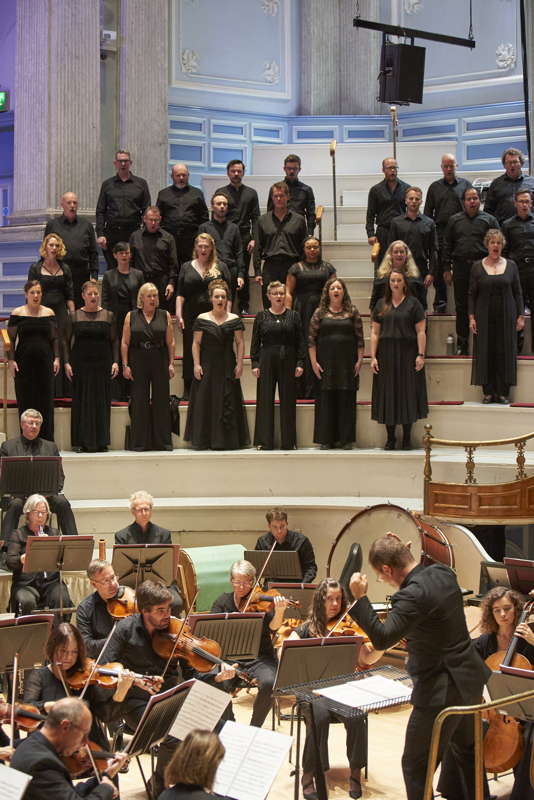
Antony Hermus conducting the Chorus and Orchestra of Opera North in Gluck's Orfeo ed Euridice. Photo © 2022 Justin Slee
The switch to the Elysian Fields was conveyed with beautifully limpid orchestral sound, and in Orpheus's 'Che puro ciel', Alice Coote successfully conveyed a sense of wonder tempered by the knowledge that he still has a long way to go. Told by Amor that he can have Euridice back, on condition that he does not look at her until they are back in the mortal world, his thinking this over was accompanied by some of the evening's most vivid orchestral playing.
Act III brought Fflur Wyn's Euridice - radiant at first, but her increasing agitation at Orpheus's apparently odd behaviour spilled over into utter bewilderment in 'Che fiero momento'.
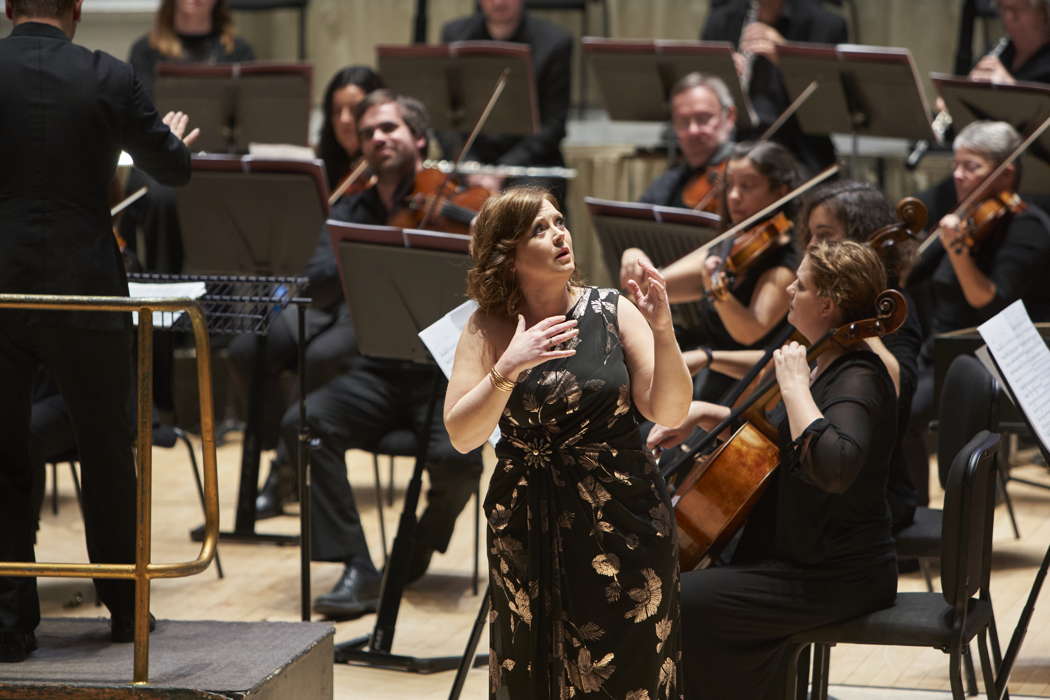
Fflur Wyn as Euridice in Opera North's production of Gluck's Orfeo ed Euridice. Photo © 2022 Justin Slee
As Orpheus finally gives in, and loses her a second time, 'Che faro senza Euridice' was no mere alto party-piece, but genuinely tragic, with Coote wavering between grief-stricken stillness and undirected energy.
Even the happy ending, as Amor acknowledges Orpheus' proof of his fidelity, and finally reunites the two lovers, felt like more than just an Age of Enlightenment re-write of the myth, but emerged convincingly from the sum of the action up to this point. The final choral celebrations genuinely rang true.
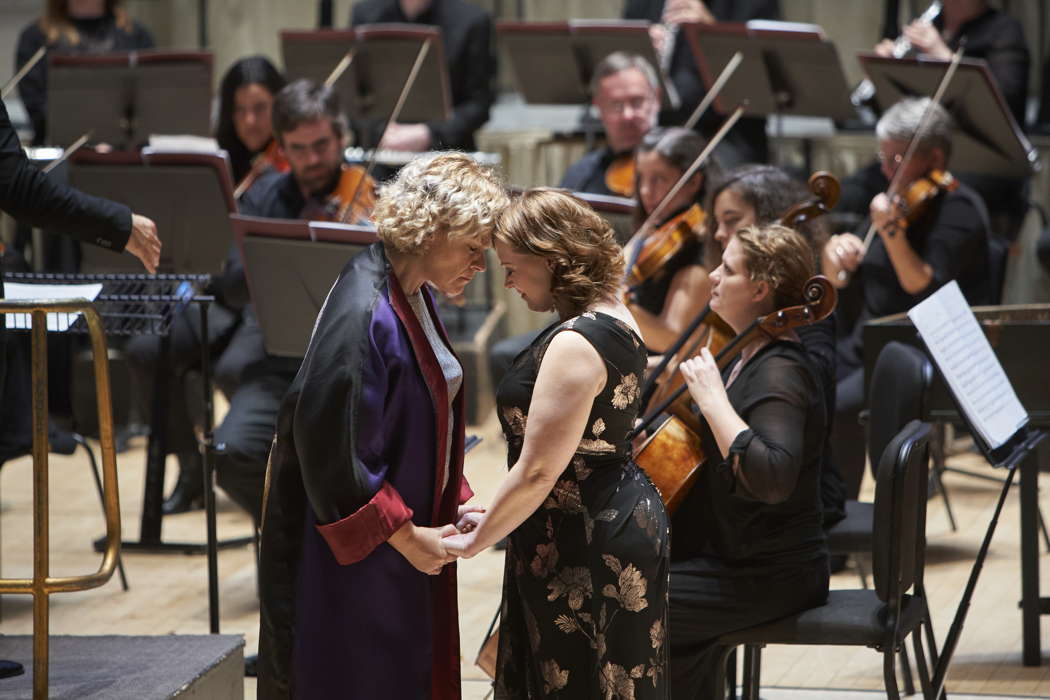
Alice Coote as Orpheus and Fflur Wyn as Euridice in Opera North's production of Gluck's Orfeo ed Euridice. Photo © 2022 Justin Slee
Antony Hermus conducted with sure grasp of the opera's dramatic pacing. The production also demonstrated, if anyone still needs convincing, that the original 1762 Vienna score stands perfectly well on its own, without extras grafted in from the 1774 Paris version.
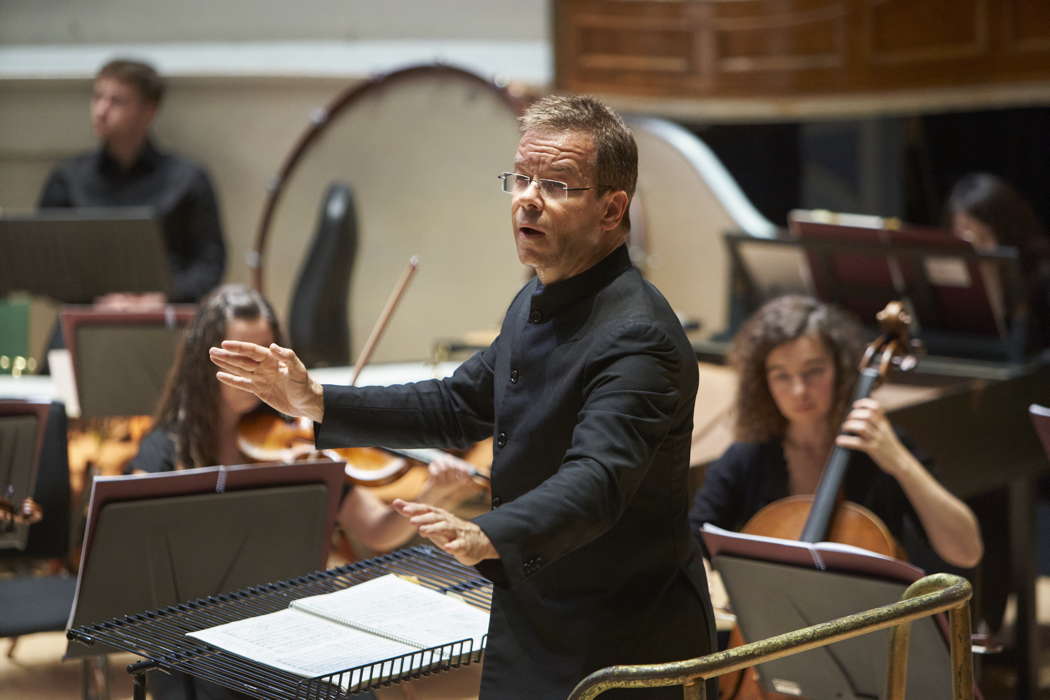
Antony Hermus conducting the Orchestra of Opera North in Gluck's Orfeo ed Euridice. Photo © 2022 Justin Slee
The whole thing was totally riveting. More Gluck, please!
Copyright © 28 November 2022
Mike Wheeler,
Derby UK

ARTICLES ABOUT NOTTINGHAM'S THEATRE ROYAL


